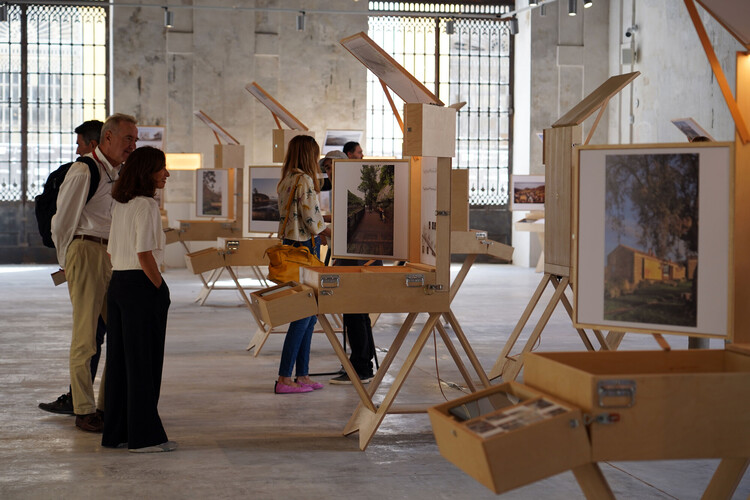
The seventeenth edition of the Spanish Biennial of Architecture and Urbanism (BEAU) will take place in December 2025. The event consists of an exhibition hosted in a former thermal power station repurposed as a cultural center in Ponferrada, in northeastern Spain. This edition will be curated by architects Ander Bados Sesma, from Atelier Ander Bados, and Miguel Ramón López, a Ponferrada native and architect at Estudio Lamela, under the curatorial proposal titled flujos comun.es ("common flows"). Their curatorial proposal responds to the theme of the open call: Architecture as a Policy for Change, an invitation to reflect on the role of the discipline in processes of social, economic, and environmental transformation. Within this framework, flujos comun.es presents a critical perspective on the challenges associated with hyperconnectivity. The call for proposals and project submissions is currently open, and will be until the end of July, depending on the category.
The XVII Spanish Biennial of Architecture and Urbanism (BEAU) is organized by the Ministry of Housing and Urban Agenda (MIVAU), in collaboration with the Spanish Council of Architects' Associations (CSCAE) and the Fundación Arquia. The event will take the form of an exhibition at La Térmica Cultural in Ponferrada, aiming to offer the public a representative selection of significant works in the field of Spanish architecture and urbanism developed between 2023 and 2024. The call is open to built or conceptual projects either in Spain or abroad by Spanish architects, with specific registration and submission deadlines for each category. The deadlines for submission are July 22 for architecture and urbanism works, July 23 for final degree projects, and July 24 for dissemination works and publications. The final degree projects will also be shown in a traveling exhibition across various Spanish architecture schools.

The curatorial framework for this edition, flujos comun.es, is structured around five thematic pillars: materials, people, energy, data, and environment. Through the lens of curators Ander Bados Sesma and Miguel Ramón López, these five axes represent the essential flows that shape contemporary society. Their goal for the event is to provide a critical framework to analyze how architecture and urbanism address social, economic, ecological, and digital challenges, questioning traditional architectural practices and examining how they adapt to change. This edition of the BEAU is conceived as an opportunity to recognize and highlight architectural practices that have been redefined through the ongoing interacdantion between the local and the global, fostering collective reflection on the tools needed to design within an uncertain landscape and across blurred boundaries.
Related Article
Meet the 55 Winners of the XVI BEAU: Spanish Biennial of Architecture and Urbanism 2023The jury for the submissions includes the biennial's curators, architect Iñaqui Carnicero (Secretary General for Urban Agenda, Housing and Architecture), Marta Vall-llossera (President of the Spanish Council of Architects' Associations), and Javier Navarro (President of the Arquia Foundation). They are joined by professionals from the discipline to evaluate entries in the three categories. The jury for the architecture and urbanism works category includes Ginés Garrido, Belinda Tato, Sandra Barclay, Josep Ferrando, Mauricio Rocha, Ane Arce, Óscar Fuertes, and Betsaida Curto. Dissemination and publication proposals will be reviewed by Evelyn Alonso, Sana Frini, Pablo Ibáñez, Jesús Vassallo, and Guiomar Martín. The final degree projects category will be evaluated by Dana Barale, Andrea Bardón de Tena, Susana López, and Pía Mendaro.


In other news from Spain, the eleventh edition of the Concéntrico Festival recently took place in Logroño, featuring 24 urban interventions addressing themes such as material reuse and circular design, among other contemporary perspectives. This year will also see a new edition of the TAC! Urban Architecture Festival, with the winning projects to be built in the coastal cities of Alicante and Gran Canaria. Meanwhile, the fifth edition of the London Design Biennale featured ten pavilions that stood out for their focus on issues concerning the built environment, and the General Assembly of the Bureau International des Expositions (BIE) has officially confirmed Saudi Arabia as the host of the next World Expo.










